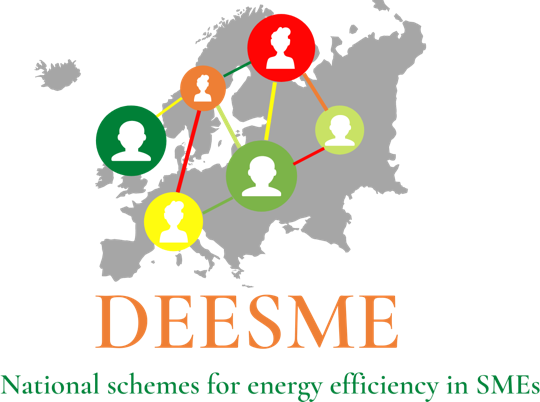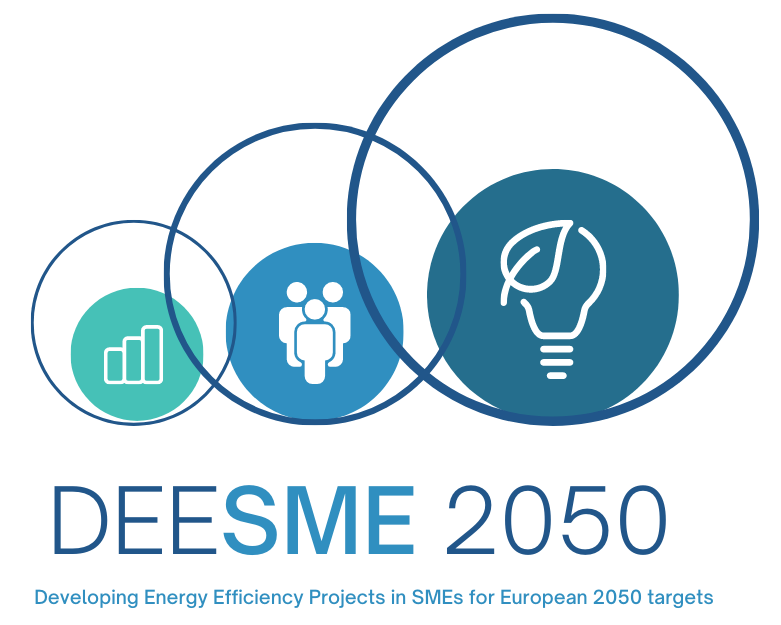About
Improving energy efficiency is the most cost-effective way to reduce energy-related emissions, improve economic competitiveness and increase energy security. In the European Union, several pieces of legislation aimed at guiding states and companies, regardless of their size, on ways to improve their energy efficiency: one of them is the Energy Efficiency Directive, establishing a common framework of measures and requirements with the goal to remove market barriers and promote a more efficient use of energy in supply and demand. Article 8 of the Directive offers ways to achieve this, requiring Member States to promote and facilitate the implementation of energy audits and energy management systems. The audits are compulsory for large companies and recommended for small and medium enterprises (SMEs). National authorities should encourage both to implement the resulting recommendations.
Conducting energy audits and implementing energy management systems can be a source of multiple benefits for companies if they tap into their wide potential: reduced operating costs, increased productivity, improved working environment and much more.
Member States have all chosen different approaches to transpose the requirements into national laws and to support companies (trainings, websites, helplines and funding support schemes). SMEs have less workforce, technical and financial capacity to perform energy audits, and therefore rarely do so: making them aware of the multiple benefits that can derive from improving their energy efficiency and accompany them in the energy transition, with knowledge and funding from both the public and private sectors, is key. That is what DEESME, a Horizon 2020-funded project (September 2020 – September 2023), aims at.
DEESME enables companies, especially SMEs to manage the energy transition by taking profit of multiple benefits from energy management and audit approaches and provides national authorities with guidelines and recommendations to empower their schemes under article 8, using the multiple benefits’ approach.
The project identifies and shares good practices from national schemes, EU projects, and other initiatives with national authorities and support them in developing more effective schemes dealing with energy audits and energy management systems. It assists SMEs to develop and test the technical DEESME solutions by organizing information and training initiatives, realising energy audits, and implementing energy management systems starting from international standard and adding the multiple benefits energy efficiency approach.
The project is built on a very strong consortium of academics, research organisations, consultancies and government offices from Belgium, Bulgaria, Germany, Italy, the Netherlands and Poland.
The project partners are supported by an advisory board, providing advice in the project methodological aspects and guiding us on energy audit methodologies and supporting policies, to ensure relevance for the industrial sector. Members include Ettori Piantoni (CEN/CENELEC T14, Belgium), Elena Battellino (ACCREDIA, Italy), Nils Borg (eceee, Sweden) and Dearbhla Stapleton (SEAI, Ireland).
What will DEESME do?
A 2-fold approach targeting both National Authorities and SMEs:
Empowering
National Authorities to implement national schemes under article 8 of the EED as institutional means that include many integrated tools to increase the awareness of all companies, motivates and supports them in the adoption of energy efficiency solutions, and finally support investments, filling the gap between the audit and the implementation of actions in large companies and SMEs.
Assisting SMEs
and larger companies in realising energy audits and energy management systems starting from the international standards and adding the multiple benefits approach.
To do so, DEESME will organise information and training activities, awareness raising and capacity building activities to involve NAs and companies. DEESME will develop specific solutions, tested by the companies, using the multiple benefits approach and recognising the best policies and practices developed with respect to the EED article 8 to promote energy audits and EMS.
There are 22.4 million SMEs accounting for 99.8% of all enterprises in the European Union’s non-financial sector: SMEs therefore represent an enormous energy saving potential. Some large companies will also be involved to analyse the impact of the management system and multiple benefits approaches.
DEESME will make energy efficiency and national schemes under EED article 8 more attractive for all companies, whether or not they should comply with compulsory energy audits, ensuring motivation to undergo them. Energy savings are only one benefit from improving energy efficiency. DEESME will update and promote the tools from the M-benefits H2020 project to evaluate and quantify other economic benefits. Energy savings also mean reducing GHG emissions and therefore participate in climate change mitigation. DEESME will involve more companies’ staff (managerial and operational): the audit should not be delegated only to an external expert delivering the results. Programmes should aim at bridging the gap between demand and supply side (SMEs, auditors, finance institutions, managing authorities of supporting schemes).
DEESME foresees the involvement of:
500
companies (of which at least 400 SMEs) in energy management trainings– 100 per country
50
key actors (trade association and similar aggregators) contributing to the exchange of good practices
50
companies undergoing an energy audit and 25 companies guided through the implementation of an Energy Management System
11
Member States and their implementation agencies for policy scheme development, out of which 6 will be supported to adopt policy solutions
2500
companies in a communication campaign
Methodology and approach
DEESME is split into four implementation packages of work focused on the involvement of the two target groups: companies (WP3 and WP4) and National Authorities (WP2 and WP5).
DEESME 2050
DEESME 2050 will build on the developed DEESME multiple benefits approach to capacitate, assist and motivate companies to overcome the obstacles in energy efficiency measures uptake in the furniture sector and its value chain, mainly in Bulgaria, France, Italy and Poland.
In order to achieve this, DEESME 2050 will involve, support and accompany companies in the implementation of energy efficiency measures based on their level of readiness. The project will also build capacities of the companies’ staff on all working levels and endorse sustainability through the preparation of financing, standardisation and replication in cooperation with associations and policymakers.
Follow the project here: https://ieecp.org/projects/deesme2050/
Enabling national authorities to enhance the impact of energy audits and energy management and companies to take profit of multiple benefits and energy management approaches
WP2 and WP3 aim at mobilising and creating awareness, enabling both target groups to take profit of the multiple benefits approach applied to energy audit and energy management. DEESME will verify where countries focus their attention and concentrate their efforts, what are the strengths and weaknesses of their schemes, the differences and similarities among them, and share good practices from policies, EU projects and other initiatives: the success elements will be adopted by the DEESME approach to be exploited once the project ends.
Implementing the DEESME campaign for energy efficiency
WP4 and WP5 are aimed to translate in action what was conceived in WP2 and WP3, in a DEESME energy efficiency campaign to verify the attractiveness of the DEESME approach and tools developed and engage /motivate companies to invest in energy efficiency in the meantime. The campaign will be co-designed with NA, companies’ associations and other key actors. Living labs will be considered in some countries, on top of more traditional approaches (workshops, trainings, emailings, etc.).
Institutionalising the DEESME policy outcomes
WP5 makes a synthesis in terms of policies and strategies adapted at national level as well as initiatives/actions to improve or create audit-supporting-schemes, with the goal to involve National Authorities until the final steps, resulting in 10 policy proposals for the NAs and activities to ensure their implementation. Project partners will work together with them to produce official documents to be adopted in national schemes beyond the project lifetime.
This approach could find the definitive adoption in new legislation and related guidelines where not only energy audits are mandatory or recommended to obtain some benefits but also the Energy Management System based on ISO 50001 and the multiple benefits approach are valorised and exploited.

